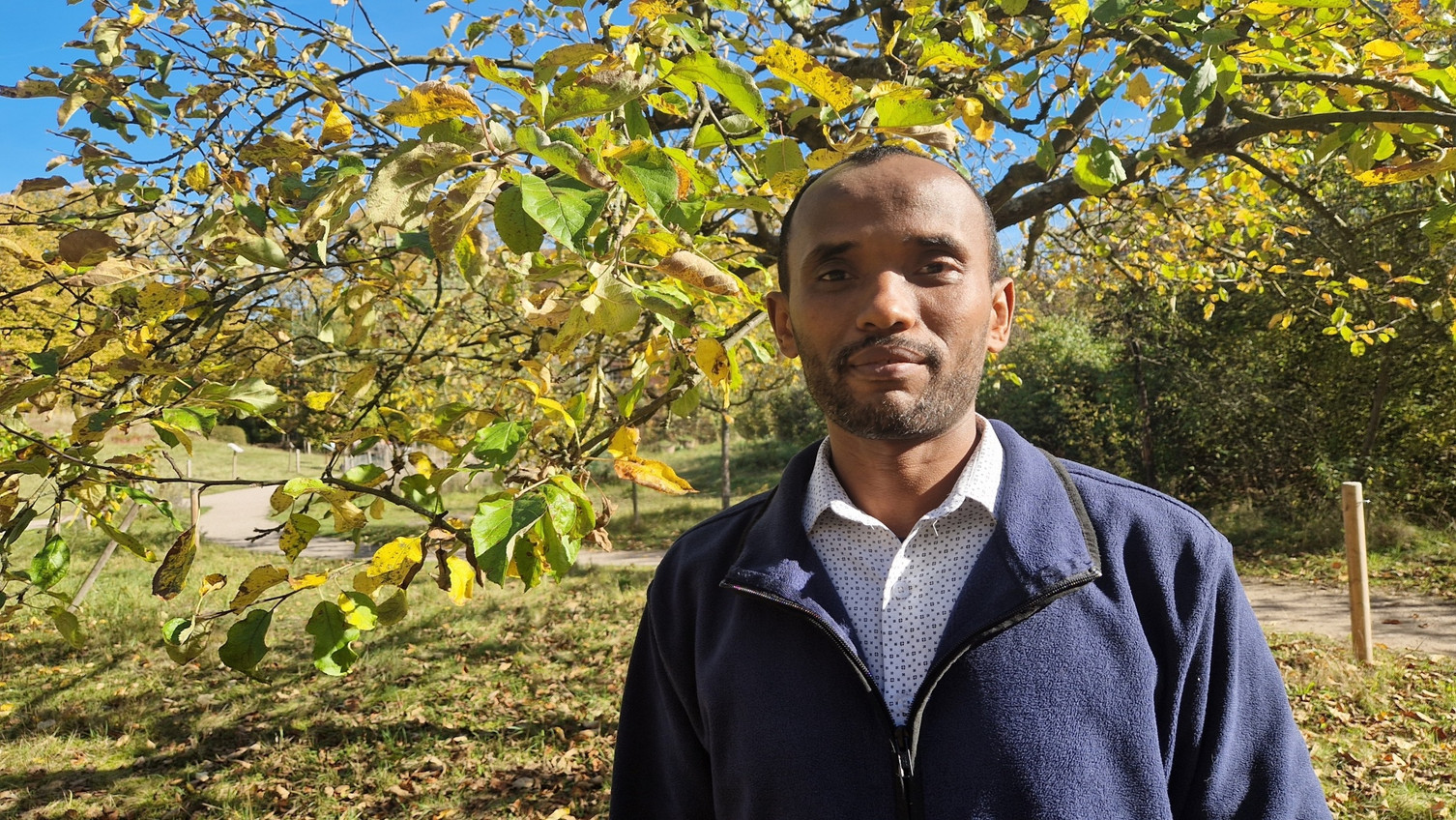With his research at Leuphana Dr. Dinkissa Benti aims to improve biodiversity conservation in Ethiopia
2025-11-10 With the help of a Humboldt Fellowship, Dr. Dinkissa Beche Benti is spending two years at Leuphana researching how a cluster biosphere reserve can be established in southwestern Ethiopia. He also wants to find out how this can improve biological diversity, what factors can hinder such a development, and what significance a functioning natural environment has for us humans.
When Dr. Dinkissa Benti is asked why he went into research, he smiles: “I love nature. I want people to be able to live in harmony with it.” Unfortunately, he notes, signs of ecological decline are becoming increasingly evident in his home country of Ethiopia including in areas of an internationally recognized hotspot of biodiversity and one of the world's wild Arabica coffee centers. These are areas with particularly high animal and plant genetic diversity. With his research, Benti now wants to improve the conditions for biodiversity conservation.
“Overall, the project aims to provide evidence based insight towards establishment of a new UNESCO biosphere reserve in southwestern Ethiopia,” explains Dinkissa Benti, adding: “The focus is on improving the protection of biological diversity, assessing the potential for networking different areas, and understanding the non-material contribution of nature to the people in the region.” With the latter point, he focuses on the question of what significance a functioning natural environment has for us humans.
To achieve this goal, he has divided his research project into two parts. In the first part, he addresses the question of how species can move between different areas around the planned biosphere reserve – in other words, how different protected areas are connected as habitats. “The study focuses on a few key species of trees, birds and mammals with different ecological ranges and conservation priorities. By analyzing satellite images and creating resistance surfaces, the project aims to identify suitable connecting routes for the movement and exchange of organisms,” explains the researcher.
In the second part of his research project, he focuses on evaluating the non-material contribution of nature to humans. “This work package aims to understand the cultural ecosystem services of the landscape, including the identification of potential ecotourism and cultural heritage sites,” explains Dinkissa Benti. Using various methods, such as interviews with stakeholders, his research aims to identify areas with a high non-material contribution of nature to humans and assess challenges that hinder their sustainable use.
The Alexander von Humboldt Foundation is supporting his research and his stay at Leuphana with a Georg Forster Postdoctoral Fellowship. The foundation named it after the naturalist, ethnologist, and travel writer who lived from 1754 to 1794—precisely because they want to support researchers in their mobility. During his stay in Lüneburg, Dinkissa Benti will also travel to Ethiopia to conduct research there. This is planned for the second part of his research in which he uses “Photovoice” method: participants in research projects photograph their surroundings against the backdrop of a specific question. The method can be used, for example, to reflect on a situation, identify needs and requirements, or develop possible solutions.
Dinkissa Benti's host at Leuphana is Prof. Dr. Jörn Fischer from the Social-ecological Systems Institute (SESI). The two have known each other for several years and have worked together on publications on biodiversity, among other things. “When I heard about the Humboldt Fellowship, I asked Jörn if he would support me as a project mentor,” recalls the scientist, emphasizing how grateful he is to Leuphana and the Humboldt Foundation for their support.
The desire to support nature in his homeland already motivated Dinkissa Benti to study biology and pursue his doctorate in plant biology and biodiveristy management. Now he is going one step further, investigating and providing insights how a biosphere reserve can be established in a particularly effective manner. It will not be his last research project.

